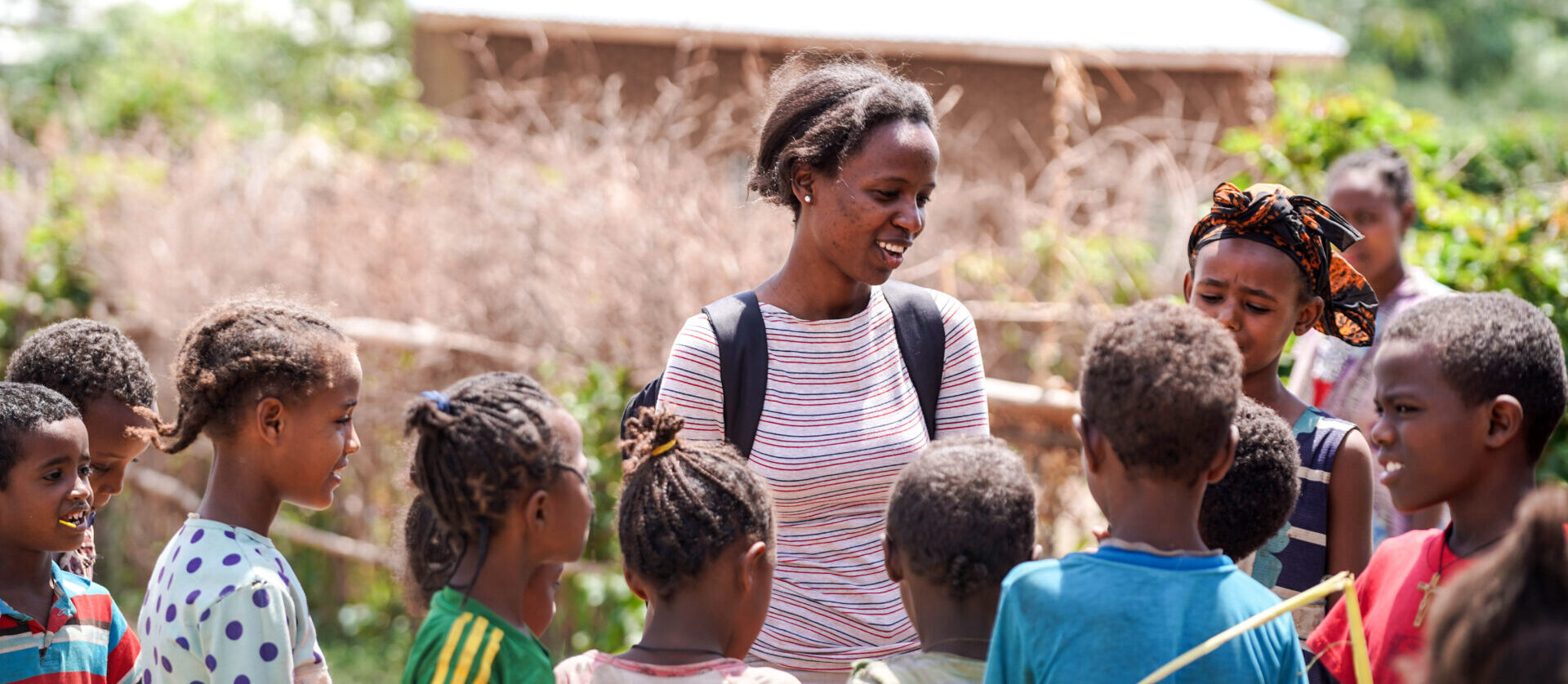Management and governance
Board of Supervisors
The Board of Supervisors authorizes the policy laid out by the Board of Directors. The Board of Supervisors is also responsible for assessing the performance of the Board of Directors. The Board has seven members. Reverend G.J. (Gert Jan) Baan is chairman of the board. Board members contribute knowledge from a wide range of subjects and jointly have considerable managerial experience. Each board member’s own professional experience has a specific focus with an added value for Woord en Daad. Board members are appointed for four years and can be reappointed twice.
CEO Woord en Daad
Woord en Daad has a two-member board of directors. Rina Molenaar MSc chairs the board. Her focus areas are the development of the internal organisation, maintaining contacts with supporters and increasing support for international cooperation in the Netherlands. As director of programmes, Jacob Jan Vreugdenhil MSc focuses on the quality and impact of programmes that Woord en Daad implements together with its partners and other stakeholders in the countries where the organisation operates. The policy adopted by the board is submitted to the Board of Supervisors for approval.
Human resources
The Woord en Daad organization continues to invest in a professional staff pool working on a basis of mutual trust, flexibility and loyalty. Our work is organised project-based, joining experts from North and South together in entrepreneurial teams focussed on result. Apart from our own staff we draw expertise from our flex-pool.The new policy direction invites for new learning curves in terms of knowledge and skills. The Woord en Daad Academy as internal capacity building platform supports the staff pool in focussed learning on personal and strategic priorities. An important focus will be on how to integrate the strategic policy themes into programming, and how to adopt adaptive management practices in projects.
The strategic move to work in broader partnerships for systemic change asks for adjusted and new roles. Strategic partnership builders will scout for new potential partners. Project leaders and experts will collaborate with a more diverse range of stakeholders and engage in a strategic dialogue on higher institutional level. Finance in projects and the organization will broaden with a role on forecasting and business planning to support adaptive planning and navigation. Qualified local project coordinators, data analysts and monitoring & evaluation experts are increasingly needed. A new national or regional role of data analyst is explored to support local and theme-specific trend analysis to contribute to our in-depth understanding of the context and steer our interventions.
Responsive partnering
We want to optimally engage and serve our supporter base in the work we do. For our networks of committed volunteers, individual sponsors, companies, churches, second-hand shops and strategic partners we aim to be and remain the available and preferred community to practically give hands and feet to compassion and justice. To do so we will invest in responsive partnering: listening carefully to the drives and preferences of our supporters and partners, pro-actively collecting feedback and facilitating a desired level of engagement. The aim is to create impact through the various partnerships: impact in the South and in the North.
Data-driven ICT
Supportive IT systems that are flexible and open are important for data exchange between varying stakeholders. It is key to collect, analyse and share data as steering information during implementation, rather than afterwards for reporting only.We will strategically invest in IT solutions to make use of expanded technical possibilities, especially where currently no fitting IT options are available. Together with the ProjectConnect Foundation we will develop tailored solutions that can be broader exploited in the sector, aiming at return on investment. Principally we look for IT applications that can boost our impact in projects and improve engagement of our supporter base.
International Corporate Social Responsibility (ICSR)
Our wish to motivate and support enterprises to run their business in a responsible manner is very naturally linked to our mission and vision. Businesses Woord en Daad cooperates with are working in fragile and poor countries, where there is a high risk of exploitation and human rights violations. To address this, we will apply our ICSR policy, guiding how we will motivate and support businesses we work with to do business in a sustainable manner. We require that private consortium partners work in line with international ICSR regulations from the UN and OECD, as required by Dutch government. If that is not yet the case, we will ask those businesses to do so. Local businesses we work with are supported to work more sustainably. Living wage and decent work are the two priority themes for which we use in-house monitoring tools.
